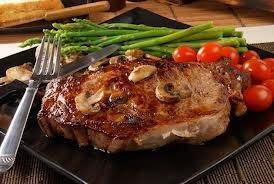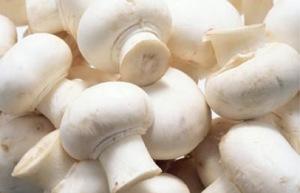 What you eat can increase or reduce the risk of cancer. Here is a list of food, both good and bad.
What you eat can increase or reduce the risk of cancer. Here is a list of food, both good and bad.
One of the reasons for this is diet. Although there is no evidence that specific foods can cause cancer, one’s diet can make one susceptible to certain forms of cancer.
For example, cancers of the stomach, bowel, lung, prostate and uterus are more likely to develop if your diet is high in fat and low in fruit, vegetables and fibre. Avoid the following items to reduce the risk of cancer:
Red Meat: It’s more tempting than white meat but various studies suggest that it increases the risk of cancer death by 10 per cent. It also increases risk of breast, colon and prostate cancers. To be on the safe side, limit intake to 300 gm a week.
French fries and chips: The process in making French fries and potato wafers creates acrylamide, which has been linked to cancer. This is a carcinogen that is present in foods that have been baked, fried or grilled at temperatures higher than 120°C.
Doughnuts: Doughnuts increase risk of cancer in more than one way. First, they are made with white flour, sugar and hydrogenated oils. Then they are deep-fried at high temperatures. The high sugar content influences the production of insulin, encouraging growth and division of cancerous cells, especially in the pancreas.
Pickles: Everyone loves pickle because it enhances the taste of a boring dish. Unfortunately pickled foods may increase risk of cancer of the stomach, particularly if they are very salty.
Sodas and soft drinks: These contain chemical additives, sugar and caffeine. Having just two soft drinks a week appears to nearly double the risk of getting pancreatic cancer.
White bread and rice: Anything that is white is unhealthy because white means processed food. White bread comes from bleached flour but even unbleached white flour is processed and contains a high level of saturated fats, which are closely linked to breast cancer. White rice has a high sugar content compared to brown rice.
To balance this out, there are other foods that can help reduce the risk. Include the following foods with cancer-fighting benefits in your diet:
Cruciferous vegetables: Broccoli, cabbage, and cauliflower contain a chemical component called indole-3-carbinol that can combat breast cancer by converting a cancer-promoting oestrogen into a more protective variety.
Organic green tea: This is one of the most well studied foods and has been on the health charts for many years because of its cancer fighting properties. It contains antioxidants that help prevent damage to cells and help in cases of bladder cancer, breast cancer, and even skin cancer. Green tea also modulates blood sugar levels.

Garlic: Garlic contains a powerful plant phytonutrient called allicin that protects the body against cancer. Studies show that Allicin has the power to kill tumour cells. Garlic also releases a powerful antioxidant effect that helps protect against free radicals, which can cause cancer.
Grapefruits: Like orange and other citrus fruits, grapefruits contain monoterpenes that help prevent cancer by sweeping carcinogens out of the body. They also contain vitamin C, beta-carotene, and folic acid.
Tomato: The antioxidant lycopene, which gives it the red colour, plays an important role in reducing risk of many cancers. They are also a vital source of vitamin C antioxidant that can prevent cellular damage leading to cancer.
Turmeric: Turmeric possesses medicinal properties because it hampers production of the inflammation-related enzyme cyclo-oxygenase 2, whose levels are abnormally high in certain inflammatory cancers, especially bowel and colon cancer.
Source: DR. J. B. SHARMA, article on The Hindu Newspaper
